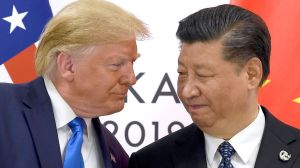Too judgmental
Are our courts getting carried away with their fixation on neoliberal conspiracy?
Striking down Salwa Judum,Chhattisgarhs state-armed tribal militia aimed at fighting Naxalism,as illegal,the Supreme Court blamed the states policy of privatisation as the central problem,one that actually and ideologically stopped Chhattisgarh from building the capacity to control the social unrest. It cites the example of imperialist-capitalist Europe in Heart of Darkness before getting to the Chhattisgarh situation. Whatever the substantive point of the judgment,its rhetoric is increasingly familiar,the courts one-note answer to all the bewildering problems that beset citizens. Recently,the Supreme Court resorted to the extraordinary measure of appointing a Special Investigation Team to find and repatriate black money implying that the government on its own was unwilling or incapable of the task and blamed the neoliberal drift for causing much of the trouble in our world. As it upheld the Allahabad High Courts order cancelling land acquisition projects in Greater Noida,the court had earlier protested the development of one section of society only,conflated the very different situations of Noida and Nandigram,and again couched its observations in terms of ideological opposition to corporate rapacity and the states abdication.
The troubling thing about these judgments is not what they finally resolve,but their tendency to draw straight connections between diverse,highly specific cases about Salwa Judum,corruption in telecom licence allocation or imperfect solutions to the land acquisition problem,to a cloudy abstraction called neoliberalism. Whatever the content of the decisions,they are often framed by obiter dicta and analogies that imply that everything is reducible to influence-peddling and crony capitalism. These may or may not be recurrent features but keeping the causes of the black money problem and the land acquisition issue analytically distinct would be more useful,even in order to fully understand how powerful interests actually operate.
Rather than a granular approach that restricts itself to interpreting cases in the light of particular laws and statutes,the courts have enlarged their self-image,as populist champion and scold. They view their role as a check on the inept executive it is not judicial overreach as much as a corrective to the underreaching government. That is a part of the shape-shifting that protects individual rights in a democracy,with one institution stepping in to fill the space when another abdicates. But these clearly ideological strictures may be going too far.







- 01
- 02
- 03
- 04
- 05
























